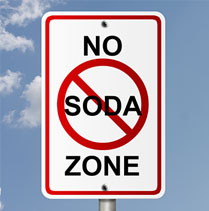
Sodas, fruit juices, and sweetened beverages have very similar amounts of sugar and are typically considered to be “empty calories.”
With the unlimited options on the store shelves of sweet drinks, it can be hard to keep them out of your children’s reach. The good news is that there are many healthier substitutions you can try to focus on with your children instead. Let’s break it down and take a look at key reasons to avoid sugary drinks.
Sweetened Beverages Increase in weight
The excess calories (with limited nutrition) from these drinks are consumed in a liquid form, which has little effect on hunger and will likely lead to excess calories in the day. Over time, these calories add up and can lead to excess weight. Sweetened drinks between meals also have a chance of decreasing children’s appetites, which in turn, decreases their intake of healthier foods. Watch out for advertisers targeting sugary drinks to your kids.
Not enough dairy foods and calcium
Lack of milk consumption leads to insufficient calcium intake. This has been linked to an increase in bone fractures in children and the increase in overweight children.
Dental problems
Sweetened drinks have been shown to increase children’s cavities and erosion of the enamel on teeth. Bacteria in the mouth loves to feed on sugar, so when sugar sits on the teeth after sugar drinks have been consumed, cavities are more likely to show up.
Healthier Options
When you’re children are young, get them in the habit of choosing these healthier beverage options! They will develop a taste for them rather than a taste for highly sweetened drinks. You can even get creative and have your kids select a fruit or vegetable to infuse into their water each week for added flavor!
|
Healthier
Beverages |
Sugar-sweetened
Beverages |
| Milk (fat-free or 1%) for children older than 2 years of age |
Carbonated soft drink (regular) |
| Vegetable juice | Sport Drinks (water is the optimal thirst quencher for most of our children’s activities) |
| Water | Lemonade |
| Flavored Non-Carbonated Beverages (ie. lemon water, cucumber water, etc.) |
Notes for chart:
Children above 2 should drink 1% or fat-free milk. Note: Many supermarkets now carry calcium-fortified fat-free milk usually called Skim Deluxe. It contains 500 milligrams of calcium vs. 300 milligrams in an 8 oz. serving.
*More of these products are available today: diet soft drinks, sports drinks (Propel), ice tea, fruit drinks, and others. The main no-calorie sweeteners used today (solo or in combination) are, acesulfame-potassium, aspartame, and sucralose. These sweeteners are FDA approved and are safe for people of all ages, including children.









